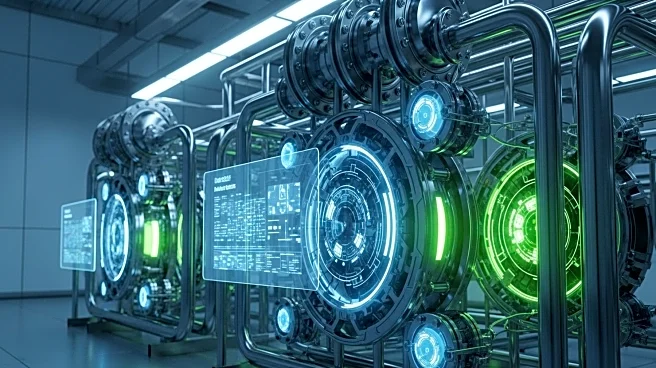What is the story about?
What's Happening?
The filtration industry is undergoing a transformation with the integration of predictive analytics, which is enabling proactive maintenance and optimizing system efficiency. Filters are evolving from reactive components to proactive partners within industrial systems, thanks to advancements in digital intelligence. By embedding sensors and IoT technology, filters can now measure particle load and environmental conditions in real-time, feeding data into AI-driven analytics to predict maintenance needs. This shift is crucial for industries that rely on filtration to protect equipment, purify streams, and ensure safety. The future of filtration also extends beyond Earth, with technology being developed for space exploration to withstand extreme conditions and operate autonomously.
Why It's Important?
The adoption of predictive analytics in the filtration industry is significant for enhancing operational reliability and reducing downtime. By transforming filters into data-driven nodes, industries can maintain optimized systems and prevent costly disruptions. This technological advancement supports sustainability goals by minimizing waste and improving resource efficiency. In space exploration, robust filtration systems are essential for mission success, highlighting the importance of developing resilient and autonomous technology. The integration of AI and IoT in filtration systems sets a precedent for other industries to follow, demonstrating the value of proactive maintenance and data-driven decision-making.
What's Next?
The filtration industry is expected to continue integrating advanced technologies to enhance system efficiency and reliability. As AI and IoT become more prevalent, filters will evolve to provide more detailed insights into system performance, enabling industries to make informed decisions and optimize operations. The development of autonomous filtration systems for space exploration will likely drive innovation in terrestrial applications, leading to more resilient and adaptive technology. As industries embrace these advancements, they will be better equipped to meet the challenges posed by environmental changes and evolving consumer demands.
Beyond the Headlines
The integration of predictive analytics in filtration systems highlights the growing importance of data-driven decision-making in industrial processes. This shift not only improves operational efficiency but also supports environmental sustainability by optimizing resource use. As industries adopt these technologies, they set a precedent for other sectors to follow, demonstrating the value of integrating AI and IoT into maintenance strategies. The long-term impact of this shift could lead to more resilient and adaptive systems, capable of meeting the challenges posed by climate change and evolving consumer demands.
















